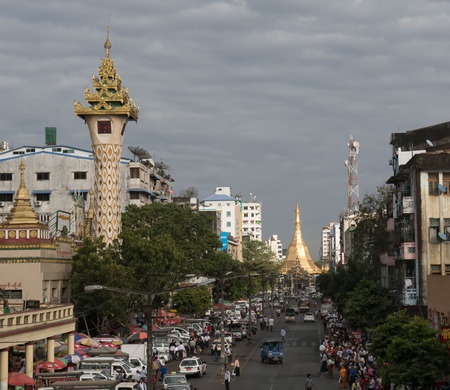6 April, 2016
On 5 January 2016, Myanmar enacted a new Arbitration Law.
The Arbitration Law provides a legal regime for both domestic and international arbitrations that closely follows the familiar UNCITRAL Model Law. It also implements the New York Convention on the Recognition and Enforcement of Foreign Arbitral Awards. New York Convention awards may now be enforced in Myanmar.
UNCITRAL Model Law
The Arbitration Law expressly provides that its objectives are to effectively resolve domestic and international commercial disputes in a fair and effective manner, recognise and enforce international arbitral awards and encourage dispute resolution by arbitration.
The Arbitration Law incorporates many of the provisions in the UNCITRAL Model Law. This means that international arbitrations seated in Myanmar will in effect be governed by the Model Law, subject to a few variations.
The most significant difference with the Model Law is the distinction between domestic and international arbitrations. Similar to the Model Law, an arbitration is defined as being an international arbitration if:
(a) the place of business of at least one party is outside Myanmar;
(b) the place of arbitration is different to the parties’ place of business;
(c) the place with the closest connection to the commercial relationship or the dispute is different to the parties’ place of business;
(d) the parties expressly agree that the subject matter of the arbitration agreement is related to more than one country.
The Arbitration Law provides that a domestic arbitration is an arbitration that is not an international arbitration. In domestic arbitrations, the parties may request the Myanmar courts to determine any question of law arising out of the arbitral proceedings.
Domestic arbitrations are to be decided in accordance with Myanmar law. International arbitrations are to be decided in accordance with the law to which the parties have agreed. If the parties have not agreed on a law, the tribunal shall decide the appropriate law to apply. The tribunal may also decide the dispute ex aequo et bono if so empowered by the parties.
As with the Model Law, the Arbitration Law seeks to balance the role of the Myanmar courts in the arbitration process. It restricts intervention by the courts by expressly providing that the courts may only intervene in arbitration proceedings in relation to the matters set out in the Arbitration Law. At the same time, the Arbitration Law sets out the circumstances in which the courts may support and supervise the arbitral process by, for example, granting orders in relation to interim measures, the taking of evidence and staying court proceedings in favour of arbitration.
Whilst the court has the power to issue interim measures, it is only in certain circumstances. The Arbitration Law appears to encourage parties to first seek interim measures from the tribunal. Not only does the Arbitration Law empower tribunals to order interim measures, it also provides that the courts may enforce interim measures issued by the tribunal. Provided that the Myanmar court has the power to issue such interim measures, the court will enforce the measure as an order of the court, irrespective of whether the tribunal is seated in or outside Myanmar.
New York Convention
Myanmar acceded to the New York Convention in July 2013. The Arbitration Law gives effect to the New York Convention.
The Arbitration Law provides for the enforcement of an award made in another New York Convention country in Myanmar unless certain stipulated groups are established. The grounds for challenging enforcement set out in the Arbitration Law are similar to those found in the New York Convention. They primarily relate to procedural issues and issues of arbitrability and public policy.
The Arbitration Law also provides for the enforcement of domestic awards. A domestic award may be set aside on grounds similar to Article 34 of the Model Law or it may be appealed on a point of law. As these provisions appear to relate to domestic arbitrations only, it is not clear whether or not they also apply to international arbitrations seated in Myanmar. Accordingly, the procedure for enforcing or setting aside an international arbitration award made in Myanmar is uncertain.
Protection for foreign investors
The Arbitration Law is a major step forward bringing Myanmar into the fold of the modern international arbitration network. The implementation of the New York Convention has been eagerly awaited. It now remains to be seen how the Myanmar courts will apply the new law in practice.
Further, there may still be a legal requirement that some contracts be governed by Myanmar law. Sales contracts, government contracts and contracts relating to land and natural resources within Myanmar are potential examples of such contracts.
Nonetheless, the enactment of the Arbitration Law will give foreign investors confidence that if they agree to refer disputes to international arbitration outside Myanmar, an award may be enforced by the Myanmar courts under the Arbitration Law.
In addition, foreign investors may be able to rely on the investment protections provided in a bilateral investment treaty or a free trade agreement, such as those provided in the Australian-ASEAN-New Zealand Free Trade Agreement. Such investment protections, if available to the foreign investor, may be used to bring a claim in international arbitration in the event that a government or regulatory body interferes with the investment.
In order to take advantage of the protections that may be available to foreign investors, consider international arbitration when entering into contracts in Myanmar. Also consider whether investment protection under an investment treaty or free trade agreement will be available in the unfortunate event a dispute arises.
For further information, please contact:
John Hancock, Partner, Baker & McKenzie
john.hancock@bakermckenzie.com






